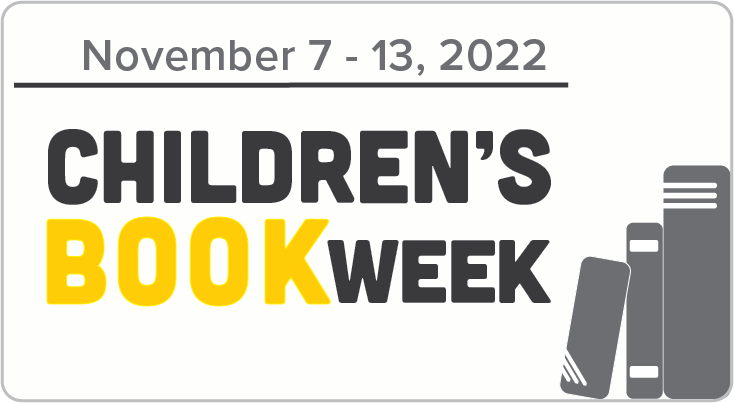Children’s Book Week: 7th – 13th November 2022
At our recent One Education Literacy Conference, we were lucky enough to listen to a talk by the inspirational Onjali Q Rauf MBE, founder of women’s rights organisation ‘Making Herstory’ and award-winning author of The Boy at the Back of Class. Onjali told us about her favourite teacher, who used to read to the class on the story carpet, describing this as “…the best part of the day”. Onjali’s teacher was a fantastic story-teller, bringing books to life and letting each child have a turn at choosing the next title so they all felt part of the process. It is this teacher, and the experiences she provided for the children, that Onjali credits with first igniting her love of reading.
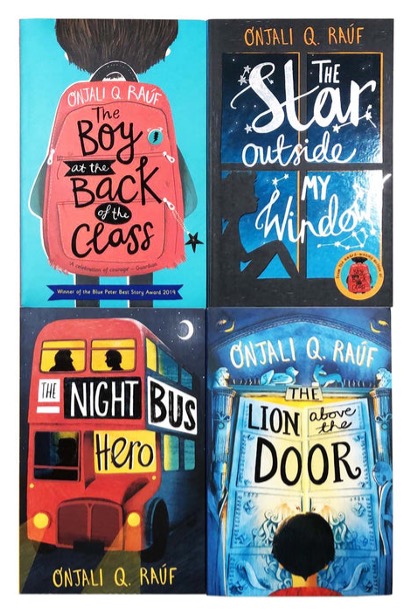
Nurturing a love of reading for children throughout their education really can have a multitude of benefits that will remain with them throughout life. There is much research to demonstrate the benefits of reading for pleasure, which transcend over personal, social and academic levels. Alongside improved attainment, studies have shown that reading for enjoyment “…can result in increased empathy, improved relationships with others, reductions in the symptoms of depression and dementia, and improved wellbeing.” (The Reading Agency, 2015).
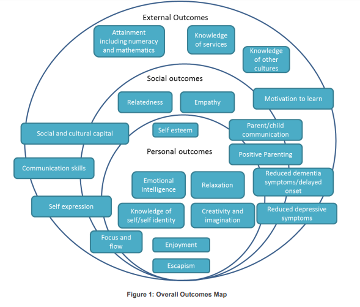
Outcomes of Reading for Pleasure, The Reading Agency (2015)
So, what can we do to celebrate children’s literature?
Giving Children a Choice
“Teachers, parents and carers’ role is to entice, suggest and empower. While setting reading lists which must be adhered to is the easier way to measure reading, it stifles the development of the reader. It limits their ability to explore and uncover reading experiences and, through that, who they are.”
Alison Tarrant, CEO of the Schools Library Association
It is crucial for children to feel empowered in choosing their own books if they are to become confident, independent readers. Children can use books to learn about new worlds, adventures and characters, as well as having the opportunity to see people like themselves represented in the stories that are shared. There is a wealth of beautiful non-fiction books available, which present information to the children in imaginative ways, as well as picture books for all age ranges which promote great discussion and encourage deeper-level inference. There are now a wide variety of ‘HiLo’ (high interest, low reading age) titles available so children of all fluency levels are able to choose their own books based on their interests and passions.
However, as Alison Tarrant also mentions, too much choice can be overwhelming for children. It is very helpful for us as practitioners to have a secure knowledge in order to confidently guide and make recommendations for individual readers. It is also beneficial for the children to see adults in school choosing books and giving recommendations, allowing them to realise that it’s ok to sometimes not enjoy a particular book as much as they have enjoyed others.
Hooking Children into a Book
Below are some useful ideas for engaging children in texts. This could be as part of a shared reading activity, class story time or an introduction to a unit of writing based around a book.
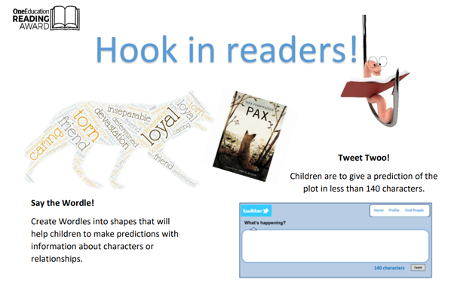
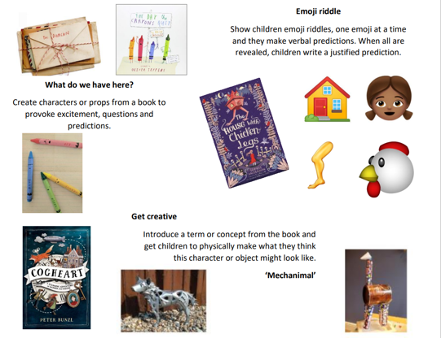
Fostering a Love of Reading
Case Study: Holden Clough Primary School, Tameside
At Holden Clough, Adam Porter, Literacy Lead, has prioritised and instilled a love for reading across the whole school community with corresponding improvements seen to pupil outcomes and enjoyment in reading. He is motivating and inspiring in the approaches he takes, engaging children in reading at the heart of all literacy.
To achieve this, the school adapted the following strategies:
- Teachers must be seen as readers
- Used ‘Wishlist’ to order requests from pupils, staff, parents and other stakeholders
- Organised book fairs, sponsored read events and author visits
- Headteacher shares short texts in assembly
- After-school book clubs
- Weaved reading into other areas of the curriculum
- Books are current, diverse and valued
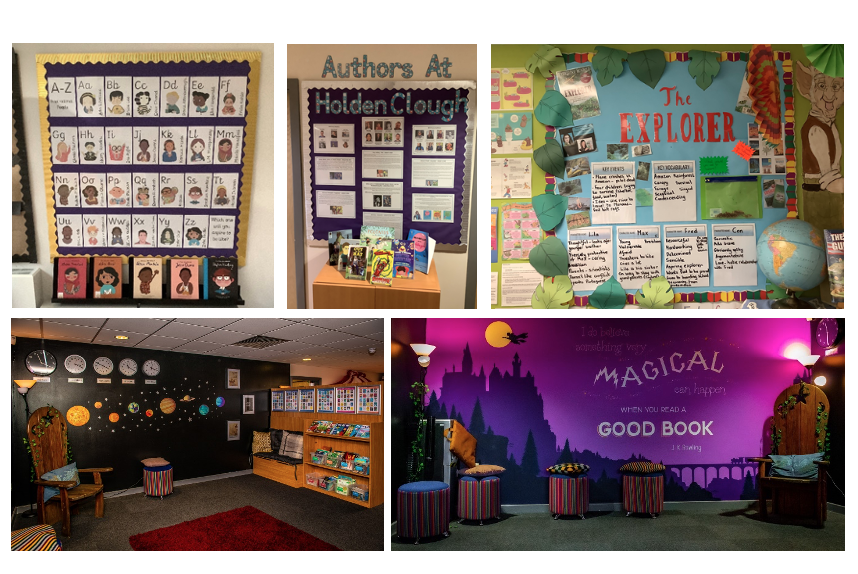
Staying in-the-know
We know it may feel daunting to know where to begin with keeping up-to-date with children’s literature. Below are some suggestions that will help you to choose high-quality, diverse texts for your classroom and feel more confident in recommending books to the children in your class.
- Form links with local book shops – perhaps you could you organise a staff meeting there?
- Visit the library to see which new books are on display
- Twitter – Follow authors, illustrators, publishers…
- Look at award winners, e.g. UKLA, Kate Greenaway, Carnegie
- Set up a staff book swaps/recommendations
- Visit Love Reading 4 Kids for lots of recommendations
- Peters Books in Birmingham can also help suggest books for a collection/ based around a theme.
- Download our free book lists here – Diverse Voices and Developing Emotional Literacy
- Access our reading CPD modules
If you would like further support in promoting a love of reading within your school then you might be interested in working towards the One Education Reading Award. We offer different packages of consultant-led support and access to a wide range of resources to help support a thorough, consistent approach to the teaching of reading across the primary and secondary phases.
Further Reading









